Identifying Jeep 4.7 Engine Problems early, even without knowing auto mechanics, is important to avoid being stranded midway.
For the last many years, the 4.7 engine has offered excellent satisfaction to many users. But, like all engines, 4.7 also has several engine issues that we will discuss today.
Our main goal here is not to emphasize the criticism of the 4.7 Jeep engine, but we will try to provide its solutions. Cars have delicate machinery that must be periodically maintained to ensure proper operation.
Beyond the car maintenance services recommended by the manufacturer every 5,000 or 10,000 kilometers.
Moreover, it is convenient that you regularly check the levels of oil, antifreeze, brake, and transmission fluids, as well as tire inflation, especially if you go out on the road.
Even so, there will be times when the engine of your car has some non-preventable failure that requires your attention and that you can detect in the following ways.
Jeep 4.7 Engine Problems, Specification and Solutions
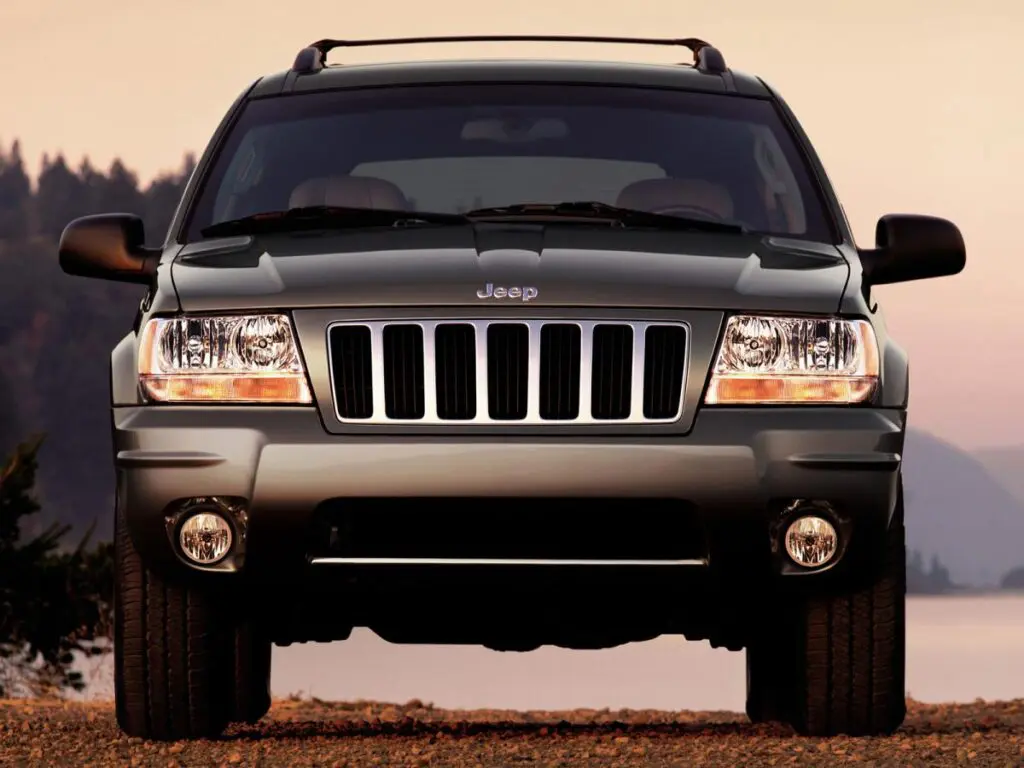
If you are planning to buy a Jeep or already having one, you need to know about the most common Jeep 4.7 Engine problems and their solutions.
Before we proceed further, here are the Jeep 4.7 engine specification.
Jeep 4.7 Engine Specification
Here are the key Jeep 4.7 engine specification:
- Fuel consumption – 15.8 liters per 100 km.
- Speed: 0 to 100 kilometer per hour (62mph) in just 8.3 seconds
- Maximum top speed: 196 kilometers per hour (122 mph)
- Motor: Petrol
- A curb weight: 4050 pounds (1837 kgs.)
- Engine: Naturally-aspirated cylinder engine V 8
- RPM: 4600 RPM
- Maximum torque: 295 lb.ft (400 nm) @ 3200 rpm
- Maximum power-producing: 230 PS (169 kW – 227 bhp)
- Power transmitted: AWD (All Wheel Drive)
- Speed gearbox: 4 Speed Automatic gearbox
- Front side stock sizes of tires: 245 / 70 16-inches rims on the front side
- Rear side stock sizes of tires: 245 / 70 16-inches rims on the rear side
- Stopping power: The jeep 4.7 engine has a braking system that includes Discs at the rear and front on both sides.
Jeep 4.7 Engine Problems and Proper Solutions
Here we have discussed the most problems and solutions for Jeep 4.7 engine.
Problem 1: Won’t start
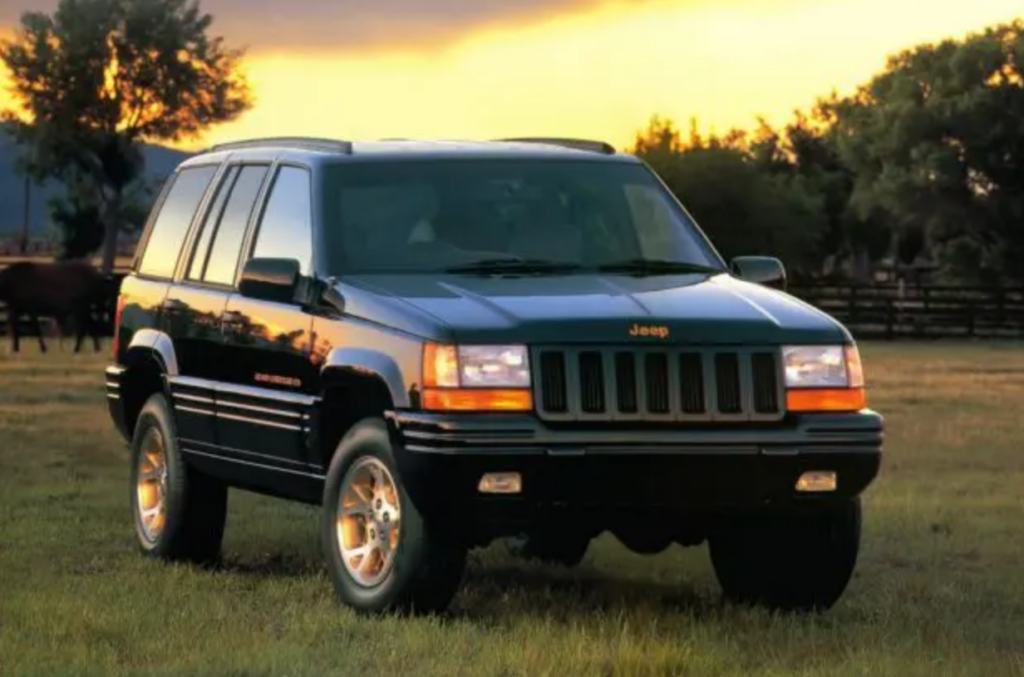
When your car doesn’t start or comes to a stop in the middle of a road between rain and rush hour traffic, the most likely cause may be a bad battery or alternator.
How terrible it is to turn the key and find that it does not turn on.
Solution 1:
In this case, the best remedy is prevention. Remember that batteries have a limited lifetime. Depending on the use, they can last up to five years.
For this reason, it is convenient to go with the electrician from time to time to check the condition of the accumulator and the way it is protecting the energy.
Diesel engines emit dangerous (cancer-causing) particles. For some time now, manufacturers have integrated particle filters into the exhaust system, which retain the solid particles generated in combustion so that the engine pollutes less.
Its estimated useful life is about 120,000 km. When driving is too quiet (at low revs and on short trips), it can become saturated with particles.
A fault warning light will come on the dashboard, and you should even notice that the mechanics offer less response. If it is not solved with a good time driving on the road at high revs … it will have to be changed.
Problem 2: Alternator Problems
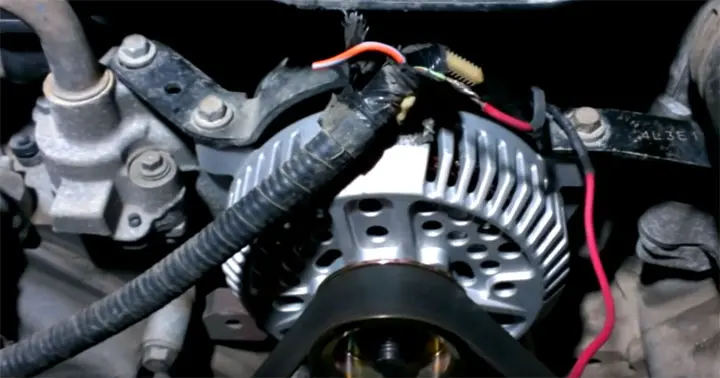
The alternator is the component that keeps your battery stable and charged. If you have problems with this element, your car will not accelerate properly.
Solution 2
If any of the wires are damaged or disconnected, then the engine power will stop working and generating. Also, it will stop running to the alternator.
And eventually, it won’t charge the battery. Here, the only best solution is to check out which wire got damaged. New modern car models are fitted with modern electronic systems.
Also, it is advisable and convenient to check it from time to time to verify its general condition.
In case the battery warning lights lit up on the car’s dashboard when you start the car, then it must be because of the low voltage. In that case, you need to check the regulator first.
Then make sure the alternator connection. Also, check the battery terminal connection and serpentine belt and make sure it is not snapped.
Essentially, there are 3 ways to repair your car’s alternator.
- Replace the older one with a brand new one.
- Replace the older alternator with a refurbished or a used one.
- Or repair your older alternator.
Problem 3: Spark plugs
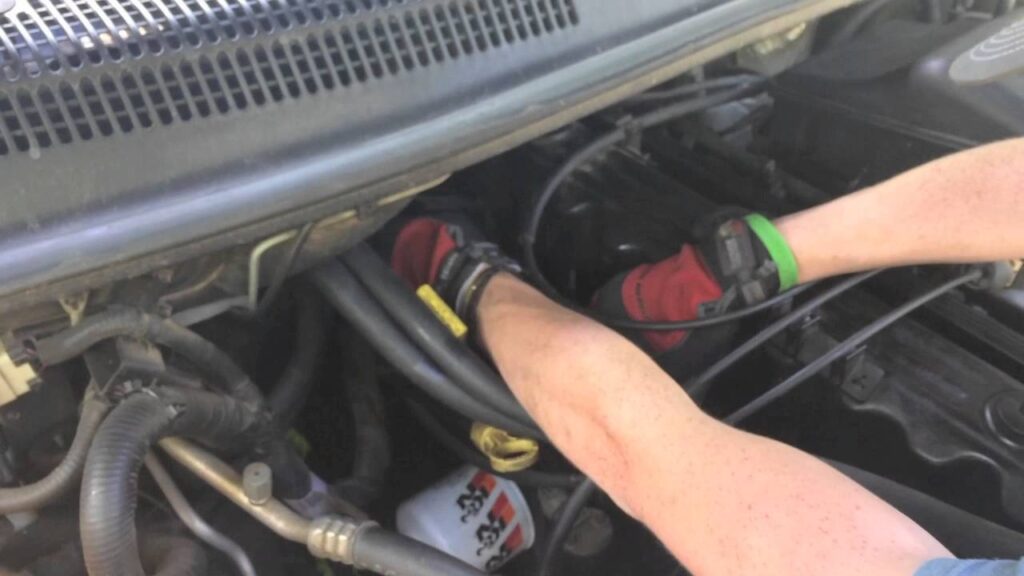
The spark plugs have a wear/tear problem. The more you use your car, the chance of spark plug failure increases significantly.
A spark plug problem can cause your car to speed well below its capacity, use more gas than normal, and produce very strange noises.
Solution 3
When the spark plug does not work properly, it can ignite the spark earlier that starts the ignition process by which the movement is generated.
If the spark plug does not work, it can cause the car to not move since there is no combustion process.
To prevent these unpleasant situations, try to service your car promptly. Including in it the regular replacement of your spark plugs. Usually, that is a misfire in the cylinder, and it is very often because of the dirty, cracked, and worn spark plug.
If your plug does not appear damaged or cracked, then you just need to clean it with any wire brush, or you can use plug cleaner as well.
Problem 4: Radiator leak
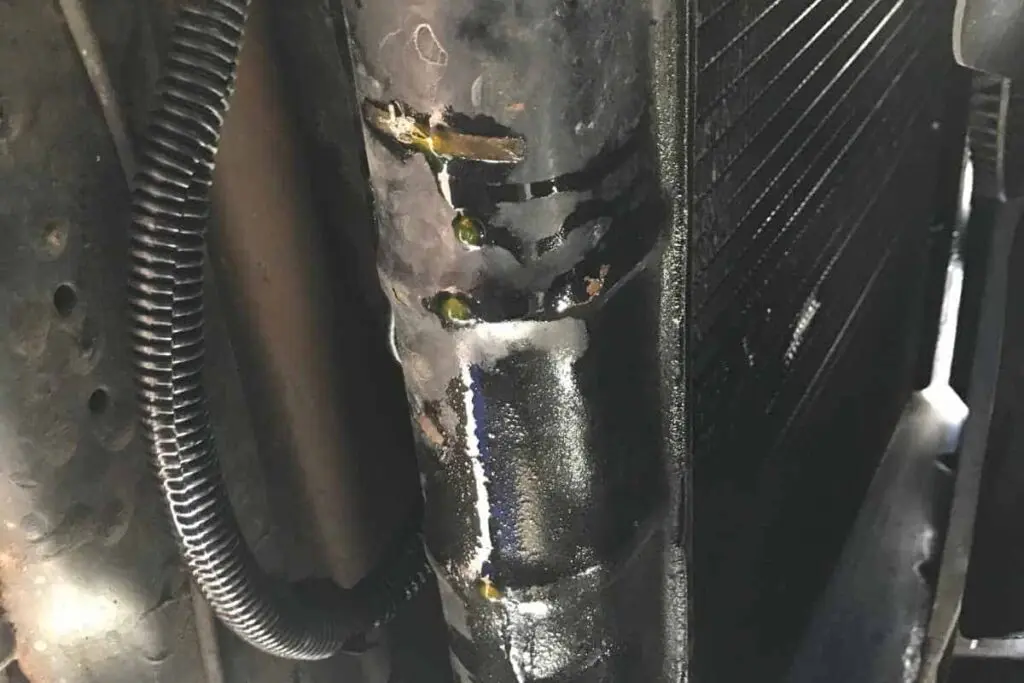
If your air conditioning starts to fail, and your car leaves an antifreeze stain where you leave it parked, don’t think it’s marking its territory. The radiator is most likely leaking.
Solution 4
Do not panic! All you have to do is check the hoses, connectors, and clamps to make sure they are in the right place and in optimal condition.
If damage is found: Replace immediately.
In the same way, the constant maintenance of the antifreeze will benefit the cleanliness and good condition of your radiator.
If it has a low brake fluid level, this may indicate a leak in the brake system. The brake warning light is red, the problem is likely a leak, although it may also represent a low level of fluid due to its use in the brake system.
If a leak is detected, the faulty component must be replaced, which is why the car should not be driven until it is repaired. However, the low level is from use, it’s time to change the brake fluid.
Problem 5: Oil leak
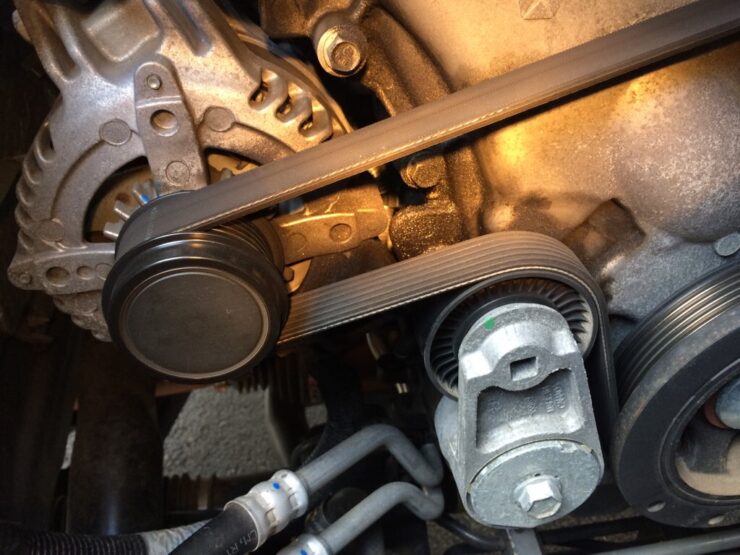
The main evidence that your car is suffering from an oil leak is the terrible black spots that it can leave behind or in your parking space.
Initially, they start small and not very scandalous, but they soon become uncontrollable. There is a possibility that the oil filter has not been correctly installed in the last service, some problem in the crankcase gasket, or some engine gasket.
Solution 5
In this case, there is no other way; you should go immediately to the mechanic and correct the problem.
To avoid this, the best thing is the continuous reviews and, in case of taking your car to the service, verify that they place everything as it should be.
If there is not enough oil or it is not of the right quality, the engine parts will not be well lubricated.
The oil must have the proper viscosity to reduce friction and remove heat, experts say. If the car stops, it is not necessarily due to lack of fuel, and it may not be enough air.
The problem with the air/fuel mixture can also be caused by the presence of water, which will cause no combustion, according to the experts. They say that the combustion process is what makes the car move.
Problem 6: Smoke and strange smells
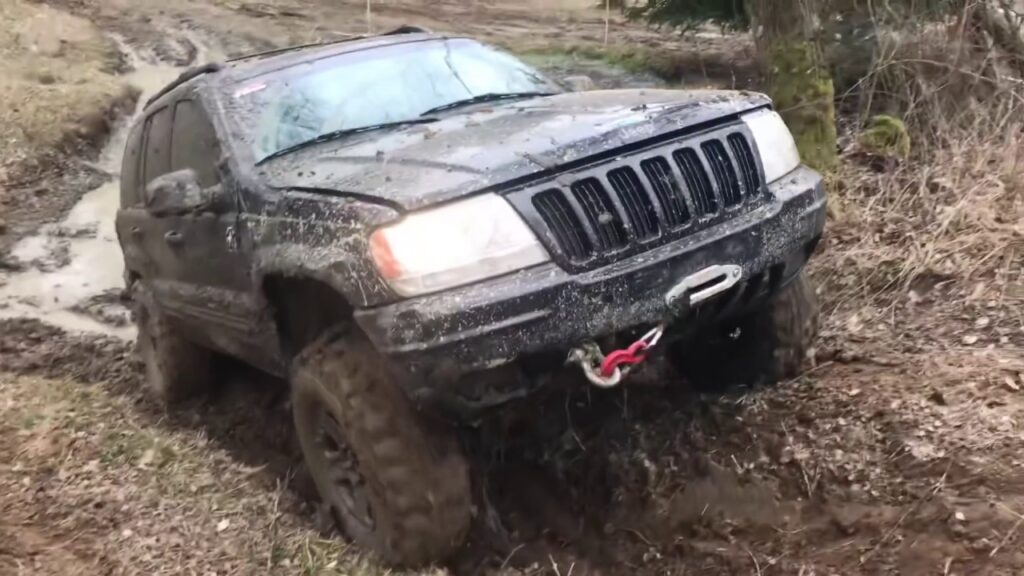
Smoke during the driving and the weird smell.
If the smoke is white and comes out of the engine, it may be due to an overheating of the engine, but if it comes out of the exhaust, the problem can be even more serious and be due to a contaminant in the gasoline or an oil leak.
Odors can be caused by oil or coolant leaks, burnt bands, or brake problems.
Solution 6
Outside of these characteristic signs, any unusual detail in the driving of your vehicle can be a sign of a breakdown and you should go to the mechanical workshop for its review.
There will be times when it is more convenient for you not to circulate or stop and call the road assistance service that auto insurance offers so that a mechanic can come to your aid or a tow truck will be sent to pick up your car and take it to the nearest garage.
A breakdown while you are circulating or that leaves you stranded in an inconspicuous place or the middle of the road can be dangerous for your safety and that of others.
Pay attention to the signs and take care of your vehicle’s engine faults before something more serious happens.
Problem 7: Unstable gear change
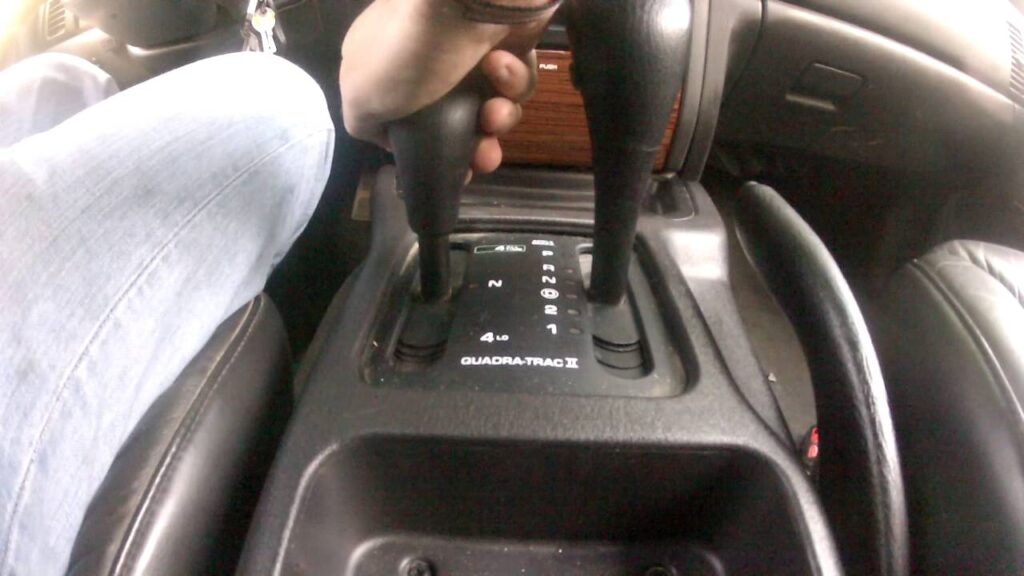
Also known as unstable idle, it consists of the car not controlling speed changes well or even turning off. This happens when the sensor does not recognize the position of the accelerator.
According to the experts, cleaning the sensor, every 40,000 kilometers should keep it running.
Solution 7
Prevention is, first of all, remember to carry out periodic reviews of your car as well as take into account if it is high mileage. Prevention will reduce the problems that your car may present.
If you notice the car rolls sideways when braking, continuing with the analysis of the different failures in the brake system, we find this characteristic behavior of the car.
The problem is that many times it is not noticeable until it is noticeably worse. It consists in that when we press the brake pedal with the car in motion; we notice that it tilts slightly, even if the steering wheel is kept straight.
This can lead to an accident or at least loss of control of the vehicle if we go at high speed.
In such cases, it is always advisable to change the transmission oil. The multiple reverse the small surface damages of the planetary gears and clutches and improves the overall performance of a friction pair.
Problem 8: Unusual explosions and vibrations
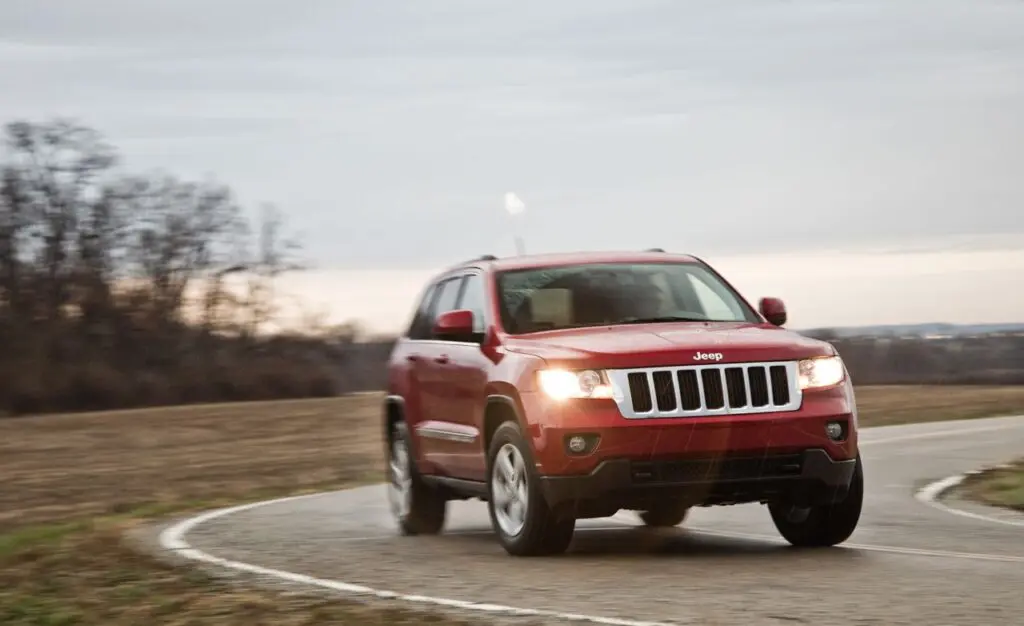
Combustion failure or cylinder knocking due to out-of-tune can result in serious and costly piston problems.
Solution 8
If when you turn the key, the engine does not start, but rather a screech is heard, it is a problem in the starter motor that should be addressed by an electrical mechanic.
Also, if you notice Vibration or knocking in the gearbox, or if you notice rattling or jerking when making speed changes, you should go to the workshop to have a complete review of the box.
If you notice any scraping noise when braking, this situation can indicate a poor condition of the brake linings.
It is a sign that indicates that the car’s brakes need immediate intervention by expert hands, as well as a prompt change of pads. You cannot ignore this type of brake problem at any time, so when you hear this noise, it is necessary to stop using the car.
Noise heard in gear is usually caused by low or improper transmission fuel levels.
So, make sure to add fuel to it. If it makes a sound when shifting gears, usually it has a problem in the turbine shaft or transmission parts, so make sure to check with the technician as early as possible.
Problem 9: Irregular engine idle or fault
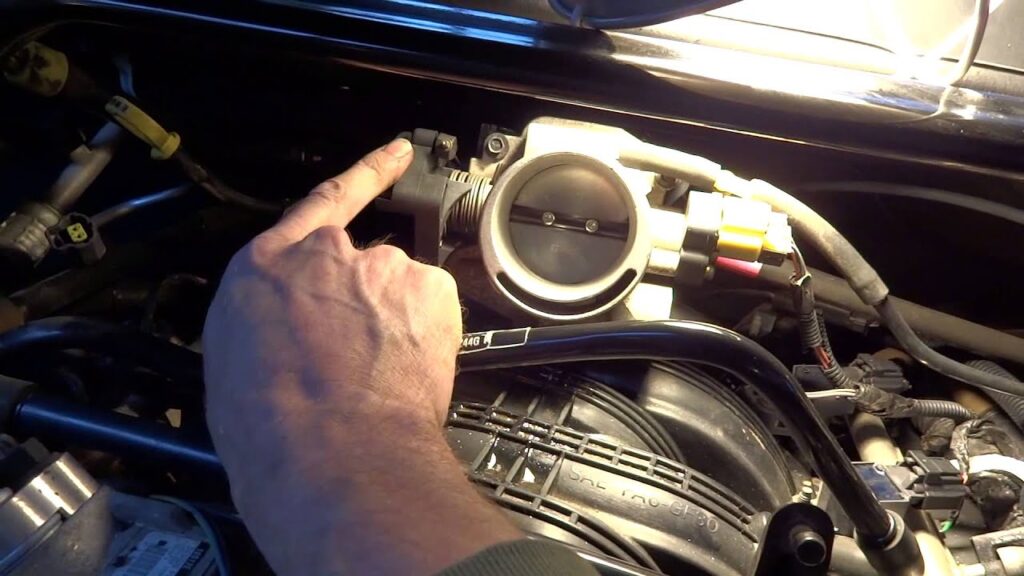
While you’re driving, few things will get your attention faster than an unexpected change in the normal operation of your vehicle’s engine. When this happens, regardless of driving conditions, it demands your undivided attention.
A fault will cause the engine to hesitate for a moment or lose rpm, and then regain normal engine speed. Usually, this fault will reappear, either under specific driving conditions or at random.
The fault can occur when the engine is idling, which will cause a rough or uneven idle.
Solution 9
The best way to identify and fix the problem is to schedule a visit to a specialized auto mechanic who has the tools and diagnostic equipment necessary to get the job done.
At this time, your notes and records about the fault or irregular idle will be helpful. Showing you the details about when and how the problem occurs can help you fix it so that you get back on the road as soon as possible.
Spark plugs are an important part of reducing the causes of failure. By removing the spark plugs, a skilled mechanic can get clues to the cause of the problem by reading the spark plug ends.
Problem 10: Engine overheating problems
Solution 10
An engine overheating could be from a clogged radiator; this would cause the coolant to not circulate properly. Therefore, it is advisable to use a cleaner once a year.
You could also find a radiator cap in poor condition; it would not withstand the pressure exerted on the radiator, which would cause loss of coolant and consequently the engine overheating.
Another cause could be due to loss of coolant, this due to leaks in the radiator, in the hoses, in the water pump; it should be noted that this is the heart of the entire cooling system since it is responsible for circulating the coolant.
The electric radiator fan must also be checked, its function of passing air from outside the vehicle through the radiator and thus being able to dissipate the heat from it.
A thermostat in poor condition, clogged by rust which causes the coolant to not reach the radiator to be cooled by the fan, will result in overheating.
This part must be changed since doing without it would bring other problems such as fuel consumption since the engine would work relatively cold.
Finally, we have the coolant. This liquid can withstand high and low temperatures; Water should not be used in the engine as it would facilitate the appearance of rust in the cooling system.
The coolant could be an antifreeze that should be used in a proportion of 50% water and 50% antifreeze.
Conclusion
As you may have realized, all Jeep 4.7 engine problems can be solved if you keep constant attention on your car and perform its corresponding maintenance services at the right time.
Similarly, you must understand the terms of your car manufacturer and your insurance provider regarding repairs and maintenance.
If you are the owner of a car, invariably, you are exposed to take some kind of risk with it. According to us, there are several common problems that your car can cause you, from a flat tire, engine overheating to something more serious like broken glass.
Some of these problems will invariably cause you to be stranded in traffic or, worse, on a dark avenue late at night. After going through the above problems and solutions, now you will be able to take care of your car.
Extra tip: Take the task of knowing which are the maintenance centers for your car where you can get discounts or more competitive prices. This way, you will always be ready for any emergency.
